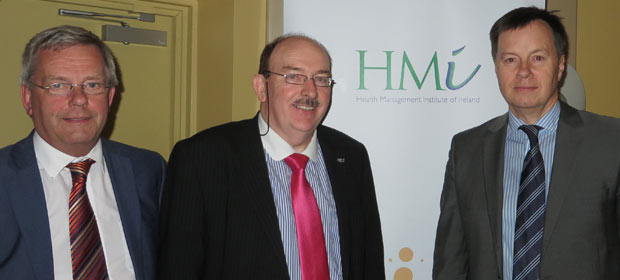We needed to change the emphasis on hospitals in the health service debate and see very clearly the effects of demographics and social care challenges on the hospitals, Mr. Liam Woods, HSE National Director of Acute Hospitals, Hospitals, told a HMI South Seminar in Cork University Hospital. Maureen Browne reports.

We needed to change the emphasis on hospitals in the health service debate and see very clearly the effects of demographics and social care challenges on the hospitals, Mr. Liam Woods, HSE National Director of Acute Hospitals, Hospitals, told a HMI South Seminar in Cork University Hospital.
He said that Special Delivery Unit information on unscheduled care and key performance indicators identified where the problems were greatest and these showed that the hospital system could not deliver without things happening in primary care and social care.
“The capacity of community services is insufficient to meet growing demands associated with demographic pressures, giving rise to high levels of admissions to acute hospitals and leading to delayed discharges in hospitals.
The capacity of community services is insufficient to meet growing demands associated with demographic pressures, giving rise to high levels of admissions to acute hospitals and leading to delayed discharges in hospitals
“I am pursuing an integrated dashboard that will reflect geographically what is required from each of the hospital groups and community healthcare organisations to deliver services at the levels required by the population and allow for monthly monitoring. I think there is a growing recognition that it is a complex problem that is not about hospitals in isolation.”
Mr. Woods said that hospitals had achieved a significant and sustained reduction in the number of trolley waits during 2011 – 2013. There had been a 33% reduction in INMO national trolley count between 2011 – 2013, however, during Dec 2014, ED performances in terms of trolley waits deteriorated for the first time in three years. This was closely linked to the growth in wait times for access to fair deal.
Delayed discharges had increased by 30%, we have had a sustained increase in total population and an increasing ageing population (a trend was which was expected to continue over the coming years), the over 65s currently made up 11.7% of general population and was growing by 20,000 each year and the number of over 80s was growing by 4% per year.
“The hospitals with the greatest numbers of trolleys need a different response. The investment of €74m in Fair Deal will support most hospitals but there will be residual challenges in a number of hospitals where there is insufficient capacity in the nursing home sector in their locality.
“It costs €5,000 on average to keep a patient in a hospital bed for a week, €1,000 to keep somebody in a nursing home for a week, while home care cost about €23 an hour. It is not as simple as taking money from the hospitals and giving it to the community but there is a dynamic in this that we need to understand in our medium term planning.
“The Clinical Programmes under the leadership of Dr. Aine Carroll have worked to reduce the pressure on hospitals and assisted hospitals to manage through setting out models of care in key clinical areas and addressing integration and patient flow issues.
“In the future we will associate funding with diagnosis and have monthly reports from hospitals using DRG analysis of weighted units of activity. “We can now comment on acuity, changing age, funding and changing volume all at one time.

